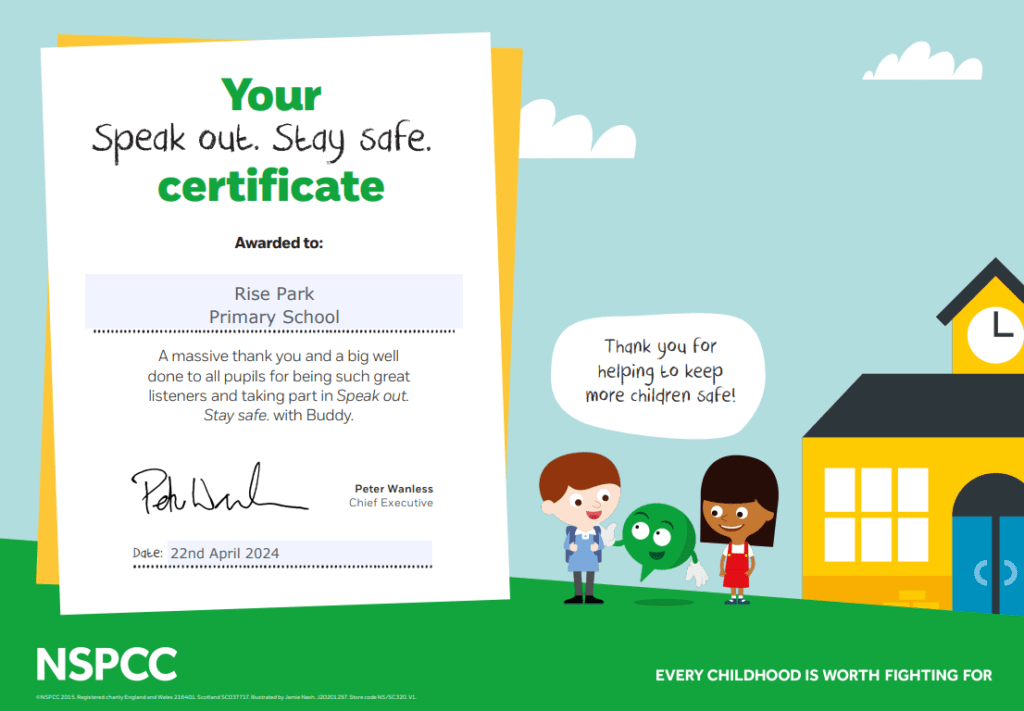At Rise Park, Safeguarding is at the forefront of everything we do. All staff have the responsibility to protect children from harm and ensure that children are happy, healthy and achieving their full potential.
As defined in KCSIE (Sept 2024), safeguarding and promoting the welfare of the child is defined as:
- protecting children from maltreatment;
- preventing the impairment of children’s mental and physical health or development;
- ensuring that children grow up in circumstances consistent with the provision of safe and effective care; and
- taking action to enable all children to have the best outcomes.






